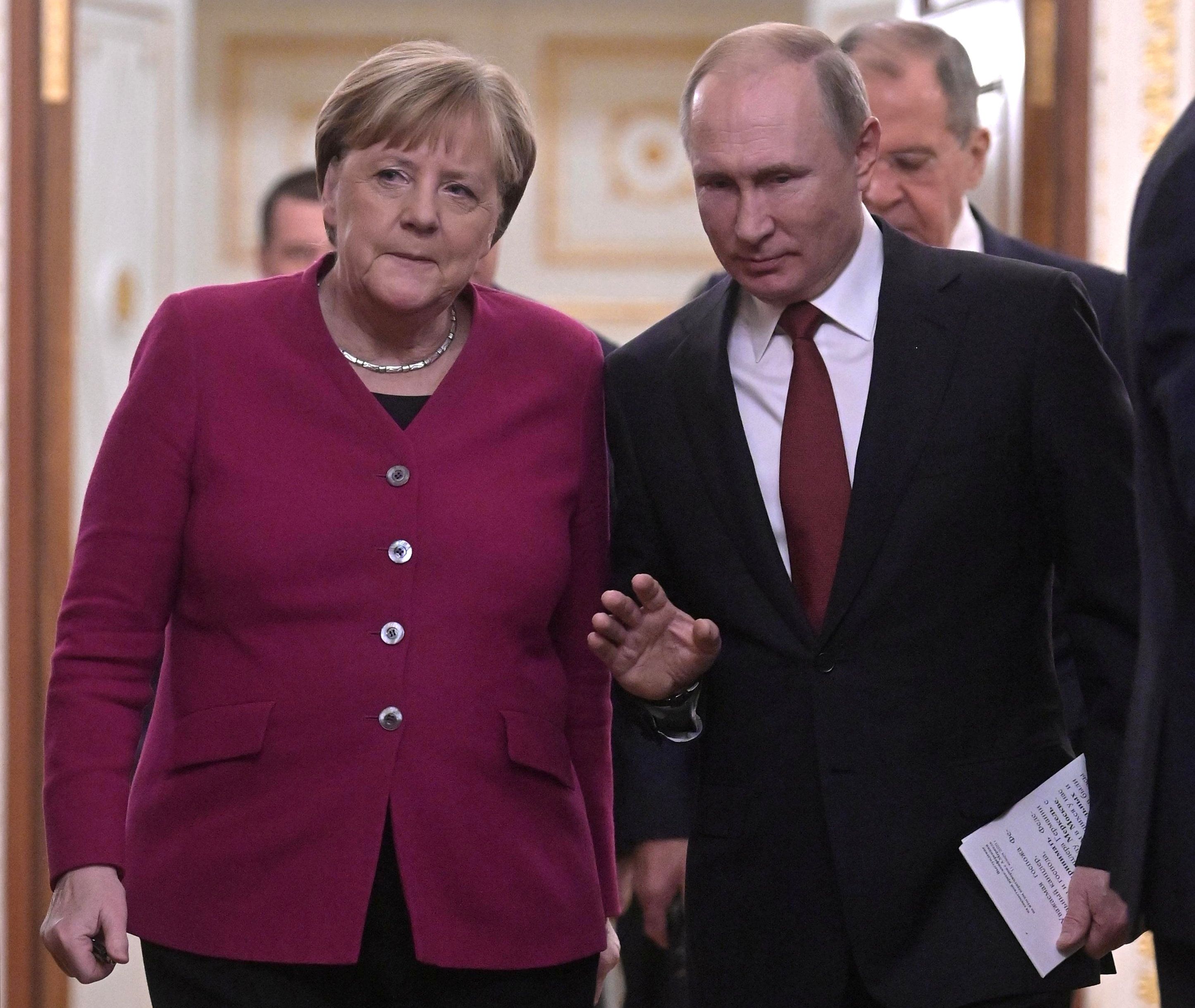News
September 08, 2020
Putin, Merkel and a poison pipeline: As the evidence mounts that Russian state actors were behind the poisoning of Kremlin critic Alexey Navalny, German Chancellor Angela Merkel has threatened to punish Vladimir Putin by imposing sanctions on a critical gas pipeline that is meant to link Russia to Germany. Navalny has been receiving treatment in Germany, and so far Moscow has ignored Merkel's demands for a thorough accounting of the attempt on his life, which occurred nearly two weeks ago in a Siberian airport. This has put Merkel in a tough spot: on the one hand, stopping construction of the controversial Nord Stream 2 pipeline would inflict a huge blow on gas-exporting Russia. But German business groups and international investors in the project are pressuring her to keep politics separate from the nearly-complete project, which is meant to massively increase gas imports for German factories and households.
Shots fired on the India-China border: For the first time in years, Indian and Chinese troops exchanged fire on the contested border known as the Line of Actual Control, with both sides blaming the other for the massive escalation. Beijing says Indian troops fired "warning shots" which it called "a grave military provocation," while New Delhi denied this claim, saying the shots came from Chinese aggressors trying to "intimidate" their troops. The flare-up comes after weeks of rising tensions during which both sides amassed thousands of reinforcement troops as well as advanced weaponry to survey the contested area. Back in June skirmishes between Chinese and Indian forces resulted in dozens of deaths on both sides. Worsening diplomatic relations between the countries' two highly nationalistic leaders — China's Xi Jinping and India's Narendra Modi — have recently trickled down to the streets of India, where the public is largely hostile to China and many have advocated boycotting Chinese-made products.
Morales comeback blocked: A Bolivian court has upheld an earlier ruling barring former president Evo Morales from running for a seat in the country's senate. The left-winger Morales, Bolivia's former president (and the country's first indigenous leader), was ousted last year by the military and fled abroad, first to Mexico and then Argentina. In February, a court blocked him from a senate run because he resides outside the country. For his part, Morales says that he is still registered to vote in the Bolivian city of Cochabamba, and that he is in exile over fears for his safety back in Bolivia, given that the country's right-wing caretaker government, led by Jeanine Áñez, has threatened to prosecute him for various crimes, including "terrorism and sedition." Meanwhile, a member of Morales' Movement for Socialism (MAS) party is the current frontrunner in the race for president, which will be held on October 18.
More For You
Michael Froman explains how the world is adjusting to Trump’s more transactional and unilateral approach to global power.
Most Popular
- YouTube
At the 2026 Munich Security Conference, NATO Parliamentary Secretary General Benedetta Berti explains why hybrid threats, from undersea cable sabotage to disinformation, energy coercion, and cyberattacks, are no longer isolated incidents but a defining feature of today’s security environment.
- YouTube
In this Quick Take from Munich, Ian Bremmer examines the state of the transatlantic alliance as the 62nd Munich Security Conference concludes.
- YouTube
At the 2026 Munich Security Conference, Brad Smith announces the launch of the Trusted Tech Alliance, a coalition of global technology leaders, including Microsoft, committing to secure cross-border tech flows, ethical governance, and stronger data protections.
© 2025 GZERO Media. All Rights Reserved | A Eurasia Group media company.
